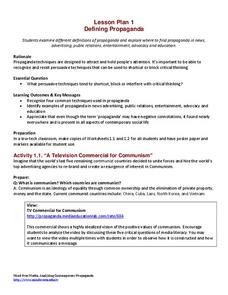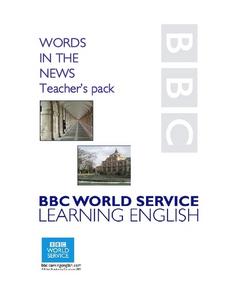Curated OER
Chinese Mythology
Seventh graders examine creation myths of China, discuss how myths reflect Chinese culture, differentiate between Chinese and Greek creation myths, and explore place of myths in Chinese culture as compared to their place in other...
Curated OER
Chinese Dynasties & Mongol Invasions
Seventh graders define dynasty and examine through research how Chinese dynasties functioned politically and militarily. They examine the effects that the Mongols had on China and describe how Mongul rule and strict social hierarchy...
Curated OER
Lesson Plan for Japan
The effect of cultural beliefs on the progress and industrialization of a society is an interesting idea to consider, and this is certainly true in this lesson on feudal Japan. Your young historians will read informational texts on...
Curated OER
Different, Yet the Same
Students explore cultural differences. In this cultural differences lesson, students complete a webquest traveling to different countries. At the conclusion of the webquest students create a slide show on KidPix.
National Wildlife Federation
Master P in the House: An All School Energy and Climate Change Plan
A person in the US uses 20 times more energy than a person in India—that's a drastic difference! The final lesson in the 12-part series goes back to the initial energy audits, analyzes which room showed the most conservation of energy,...
Curated OER
Evaluating the Open Door Policy in China
Students gain knowledge of how one country's actions affect others as well. Groups are given role cards such as Great Britian, Germany, and other countries to discuss policies they have in place and how they affect other countries.
Curated OER
Ancient History Cyber-Journalists
High schoolers describe and assess circumstances surrounding a major historical event from the ancient world by using Internet (and other) resources to research its location, people, and repercussions, & write a newsletter that...
Curated OER
The Opium Trade, the Opium War and the Treaty of Nanjing
Ninth graders analyze the English model if imperialism with regard to China and examine the economic and political impact of trade and conflict between England and China in the eighteenth and nineteenth centuries. They discuss the...
Curated OER
Cultural Exchange (Salem)
Students view the photo of the The Tea Trade Painting and discuss what they see. They will then discuss what went into the beginning of a major sea voyage. Next they explore routes traveled by the New England traders. They study sailing...
Media Education Lab
Defining Propaganda
21st century learners live in a media world. Help them develop the skills they need to be able to analyze the barrage of propaganda they face daily, with a resource that introduces them to the type of persuasive appeals found in...
Curated OER
Immigration; The New Colossus
Seventh graders explore The New Colossus by Emma Lazarus. In this The New Colossus lesson, 7th graders read the poem and analyze its meaning. Students discuss what the poem means about American culture and why it was engraved on the...
Curated OER
Chinese, Japanese and Korean Numbers and Luck!
Students explore numbers in Mandarin Chinese, Japanese, and Korean. They discuss numbers and practice writing and speaking numbers 1-10 in Chinese, Japanese, and Korean. As they create a chart of the three countries' numbers, they...
BBC
Words In The News: Japan Textbook Back In Spotlight
High-interest articles are a great way to get struggling readers to tackle difficult vocabulary. Here is a lesson that includes such an article. It is focused around a very interesting and controversial article about the teaching of...
Curated OER
The End of United States' Occupation of Japan
Ninth graders examine and discuss reasons for end of U.S. occupation of Japan in 1952, locate surrounding Asian countries on map, explore changes to Japan after World War II, and discuss how changes in Japan impacted other countries.
Curated OER
East Asia--The Asian Holocaust
Ninth graders study the effects of the Asian Holocaust by comparing it to the Nazi Holocaust. They view a Power Point and discuss the comparisons between both Holocausts. As they compare and contrast both, they discuss their reactions...














